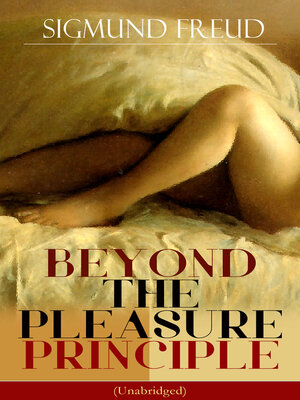BEYOND THE PLEASURE PRINCIPLE (Unabridged)
ebook ∣ Human's Struggle between Eros & Thanatos--Libido & Compulsion
By Sigmund Freud

Sign up to save your library
With an OverDrive account, you can save your favorite libraries for at-a-glance information about availability. Find out more about OverDrive accounts.
Find this title in Libby, the library reading app by OverDrive.



Search for a digital library with this title
Title found at these libraries:
| Library Name | Distance |
|---|---|
| Loading... |
This carefully crafted ebook: "BEYOND THE PLEASURE PRINCIPLE (Unabridged)" is formatted for your eReader with a functional and detailed table of contents. Beyond the Pleasure Principle is a book by Sigmund Freud that marks a major turning point in his theoretical approach. Previously, Freud attributed most human behavior to the sexual instinct (Eros or libido). With this book, Freud went "beyond" the simple pleasure principle, developing his theory of drives with the addition of the death drive (often referred to as Thanatos). The book describes humans as struggling between two opposing drives: Eros, which produces creativity, harmony, sexual connection, reproduction, and self-preservation; and Thanatos, which brings destruction, repetition, aggression, compulsion, and self-destruction. With Beyond the Pleasure Principle, Freud also introduced the question of violence and destructiveness in humans. These themes play an important role in some later writings, when Freud suggested that civilization's major function is to repress the death instinct. Sigmund Freud (1856-1939) was an Austrian neurologist and the father of psychoanalysis, a clinical method for treating psychopathology through dialogue between a patient and a psychoanalyst. In creating psychoanalysis, Freud developed therapeutic techniques such as the use of free association and discovered transference, establishing its central role in the analytic process. Freud's redefinition of sexuality to include its infantile forms led him to formulate the Oedipus complex as the central tenet of psychoanalytical theory. His analysis of dreams as wish-fulfillments provided him with models for the clinical analysis of symptom formation and the mechanisms of repression as well as for elaboration of his theory of the unconscious.







